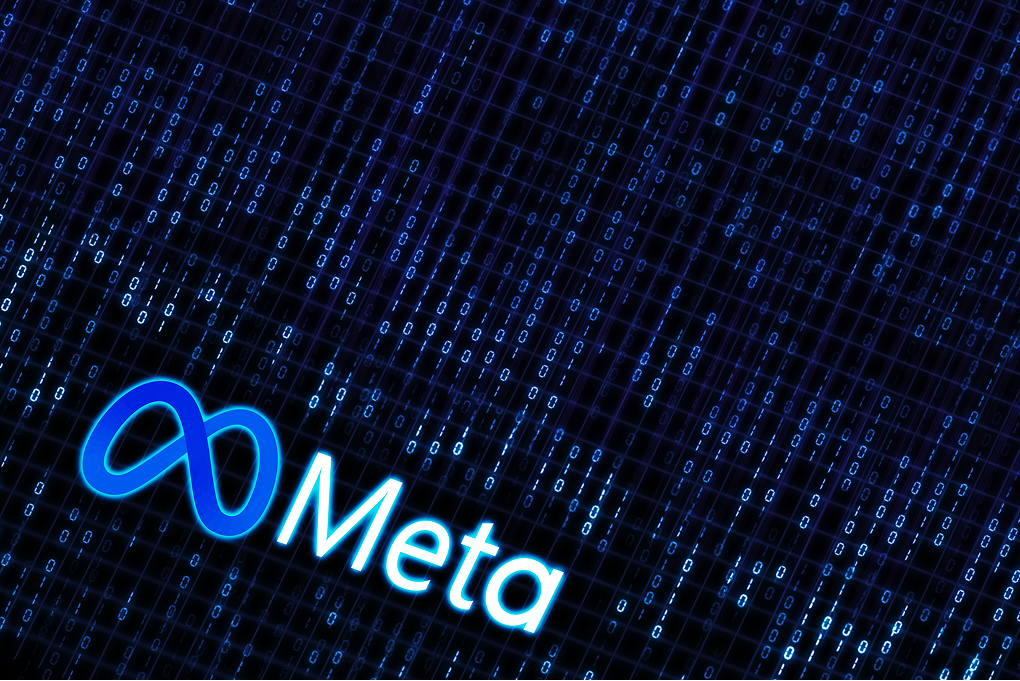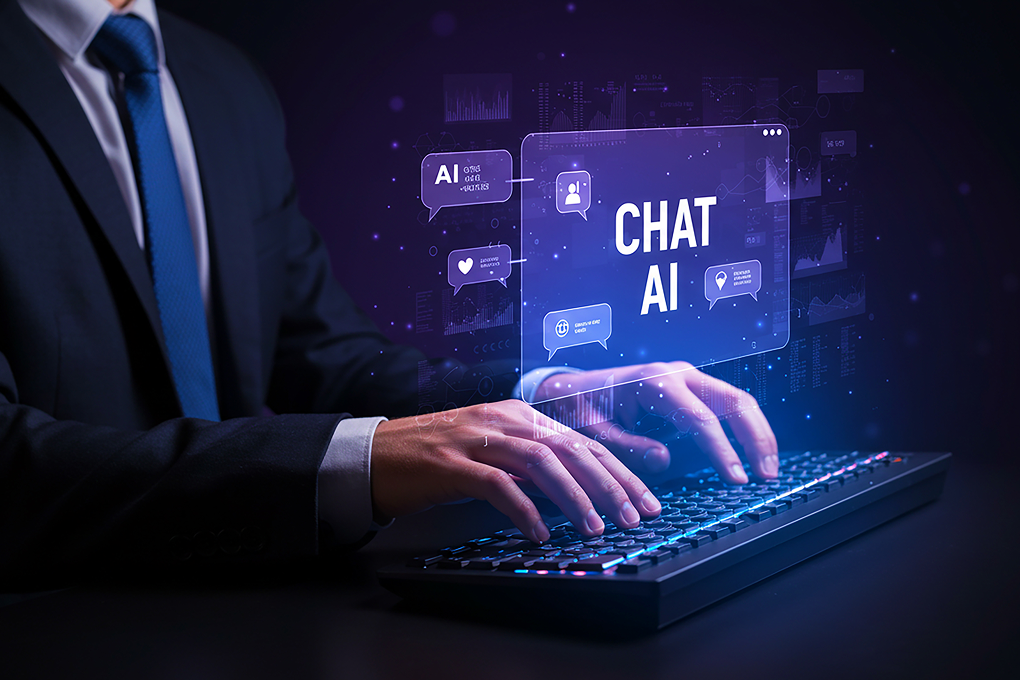Here’s the thing nobody talks about: last month, a project manager watched her construction job finish two weeks ahead of schedule, and it freaked her out. Not because something went wrong—because her AI project management software caught a supplier issue she never saw coming. Meanwhile, across town, another PM spent his entire afternoon explaining to a client why “making it more modern” isn’t actually a project requirement you can code into a system.
That’s project management in 2025. Your AI tools for project management can crunch through months of data while you’re stuck in traffic. They’ll flag resource conflicts, predict timeline risks, and even guess which team member is about to have a meltdown based on their Slack response times. Pretty impressive stuff.
But try getting an algorithm to smooth things over when your biggest client decides they hate the logo three days before launch. Or when the CEO walks into your status meeting with a “brilliant idea” that would require starting over. AI project management tools are fantastic at the technical heavy lifting, but they’re useless when politics get messy and people start acting like people.
What is AI for Project Management?
Look, AI for project management is just software that handles the crap nobody wants to do. You know that pile of tasks sitting in your backlog that you keep avoiding? The ones where you need to estimate timelines, assign people, and pretend you actually remember how long similar work took last time? That’s where these tools shine.
AI project management software digs through your old projects like a detective with OCD. It notices weird stuff—like how your team consistently blows deadlines whenever there’s a major holiday coming up, or how budget overruns always happen when you’re working with that one vendor who shall remain nameless. Then it starts making suggestions that are annoyingly accurate.
The cooler AI project management tools even get creepy-specific. They’ll ping you about team members who might be burning out based on subtle changes in their work patterns. Which is both helpful and slightly terrifying.
But here’s the catch: AI tools for project management are useless at human stuff. They can’t sweet-talk an angry client or decode what “make it pop more” actually means. They’re calculators with attitude, not miracle workers.

What is the influence of AI on Project Management
Two-thirds of projects still fail, and most project managers can tell you exactly why: they spend half their day updating spreadsheets instead of actually managing projects. AI in project management solves these issues by handling the hard stuff that bogs down every PM.
Here’s what actually happens when you implement AI project management software. It studies your project history and tells you the truth about your timelines. There’s no more pretending that the testing phase will only take two weeks when it’s taken four weeks for the last six projects. The system spots these patterns and adjusts expectations accordingly.
The accuracy improvements are striking. AI tools for project management catch resource conflicts months ahead of time, predict which projects will blow their budgets before you even submit the proposal, and identify team members who are burning out based on their work patterns. This stuff works because it processes data faster and more consistently than humans ever could.
But AI can also face some problems when projects get messy. It can’t handle the client who changes their mind every meeting. AI doesn’t really understand what “more user-friendly” actually means. It fails to navigate the politics when two departments start fighting over resources. Those problems still need human intervention.
The smart approach treats AI and project management as complementary tools. Let the algorithms handle data processing, timeline predictions, and resource optimization. Use the freed-up time for stakeholder management, strategic planning, and the complex problem-solving that keeps projects from derailing. Organizations doing this report significantly better project outcomes.
How can AI help with project management?
AI tackles the most time-consuming parts of project management that nobody enjoys doing anyway. Instead of spending hours creating task lists and updating status reports, AI project management tools handle this automatically while you focus on the stuff that actually requires human judgment.
The biggest wins come from predictive capabilities. AI analyzes your team’s past performance and tells you how long projects will really take, not how long you hope they’ll take. It spots resource conflicts months before they become problems and flags team members who show early signs of burnout based on their work patterns. Some AI tools for project management even predict which projects will blow their budgets before you submit the proposal.
Task automation is where you’ll see immediate results. AI creates project timelines, assigns work based on team member skills and availability, and generates reports automatically. It can handle such problems like scheduling nightmares and others. The technology excels at matching the right people to the right tasks, especially in larger organizations where you might not know everyone’s capabilities.
Resource allocation becomes more strategic with AI project management software. Instead of guessing who’s available next month, you get accurate capacity forecasts. The system identifies bottlenecks before they impact delivery and suggests optimal resource distribution across multiple projects.
But the real value isn’t replacing human decision-making—it’s giving you better data to make those decisions. AI processes information faster and more consistently than humans, but it still needs someone to interpret the results and handle the politics, stakeholder negotiations, and creative problem-solving that determine whether projects succeed or fail.
Common features in AI project management software
Natural Language Processing (NLP)
Why waste time clicking through endless menus? Just ask your software what you need to know. “Which tasks are overdue?” “Who can handle the Johnson project?” The AI gets it. No more hunting through dashboards or decoding cryptic reports. Type “Push the design review back three days” and it happens. Simple as texting your assistant, except this one doesn’t need coffee breaks.
Task Prediction and Automation
Here’s the thing—your team never hits those original estimates anyway. AI project management tools know this. They check how long stuff actually took before, not what you hoped it would take. When someone is sick, everything shifts automatically. No rebuilding your timeline from scratch because Dave’s got food poisoning. The system already knows who’s fast at coding and who takes forever on documentation.
Data-Driven Suggestions
Remember how every project with that one difficult client goes sideways around month two? Your AI remembers too. It spots these patterns while you’re busy putting out fires. Testing always takes twice as long as planned? The system flags it before you make that mistake again. Think of it as your paranoid project buddy who takes notes on everything and actually reads them later.
Machine Learning and Virtual Assistants
These things get smarter every month. Unlike most software that stays equally annoying forever, AI project managers learn your team’s habits. Realistic deadlines instead of pipe dreams. The virtual assistant does the grunt work—reminder emails, meeting scheduling, status nagging. It’s like hiring someone who never gets tired of doing the boring stuff you hate.
Benefits of AI in Project Management
Project managers waste about 20% of their time on administrative tasks. AI is finally changing that. Companies using AI tools report 35% faster project completion and much happier teams.
Smart Resource Assignment
Traditional project management relies on guesswork. Managers try to remember who did well six months ago. They forget that Sarah hates databases or accidentally give junior developers tasks way over their heads.
AI tracks everything. Which team members excel at specific work. Who meets deadlines consistently. Who works well together. One software company saw project failures drop from 23% to 8% just by letting AI handle assignments.
Automation That Works
Most automation creates more problems than it solves. AI project management is different. Status updates happen automatically when tasks get completed. Meeting summaries generate themselves. Budget tracking updates in real-time.
The average project manager saves 12 hours weekly on busywork. That time goes back into actual strategy and team development.
Predicting Problems Early
Project disasters follow predictable patterns. Budget overruns start with scope creep in week three. Timeline delays begin when requirements aren’t clear upfront.
AI recognizes these patterns early. If the current budget is wrong, you can get an alert. The same thing is with timelines. The system suggests fixes before things get ugly.
Communication That Actually Works
Remote work makes project communication harder. Important decisions happen inside conversations half the team misses. Action items disappear into email chains.
AI tools summarize long discussions into key decisions. They track meeting commitments and notify people when scope changes. Teams report 40% fewer missed deadlines and much better stakeholder satisfaction.
Getting Smarter Over Time
Traditional project management uses static templates and outdated practices. AI learns from each completed project. It spots what worked and what caused problems.
Initial recommendations are basic – proven templates, obvious resource conflicts. After processing dozens of projects, AI makes sophisticated suggestions about team composition and timeline optimization. Organizations say recommendations become significantly more valuable after six months.
Project management is shifting from administrative juggling to strategic thinking. AI handles routine work so managers can focus on what actually moves projects forward.

Drawbacks of Using AI in Project Management
AI sounds amazing for project management until you actually start using it. Then reality hits. Hard.
Garbage In, Garbage Out
AI learns from your past projects. The problem is, most companies have messy historical data. Projects with missing timelines. Budgets that were wildly off. Assignments based on whoever was available that Tuesday rather than actual skills.
Feed this junk to an AI system and watch it confidently recommend the same disasters. It’ll suggest unrealistic deadlines because that’s what managers always put in before. The algorithm doesn’t know those timelines were wishful thinking.
Nobody Knows Why It Decided That
AI makes recommendations but won’t tell you why. System says move your star developer off the critical path? Good luck figuring out the logic. Maybe it spotted a pattern you missed. Maybe it’s completely wrong. Either way, you’re flying blind.
This gets awkward fast when your boss asks why you reshuffled the entire team based on computer advice you can’t explain.
Everything’s at Risk
These AI tools hoover up incredible amounts of company information. Budget details, client names, strategic plans, team performance data. When hackers break in, they don’t just get one project – they get everything.
Remember when that construction firm got breached last year? Competitors suddenly knew their bidding strategies for every active contract.
Teams Stop Thinking
Here’s the scary part – people start trusting the AI more than themselves. Experienced project managers second-guess their instincts because the algorithm suggested something different.
What happens when the system goes down or gives terrible advice? Half your team forgot how to make decisions without it.
Implementation Reality Check
Getting AI working with your current systems is a nightmare. Six months of data migration. Training sessions nobody wants to attend. Half the features don’t work with your existing tools.
Meanwhile, productivity tanks while everyone learns the new workflow.
Types of AI Solutions for Project Management
Project management AI isn’t just one thing. Different tools handle different headaches. Here’s what’s actually available and working right now.
Task and Time Management AI
These tools figure out who should do what and when. They look at team schedules, skill sets, and workloads to assign tasks automatically. Some even predict how long things will really take based on similar past work.
Monday.com’s AI suggests task assignments based on team member expertise. Asana’s smart scheduling moves deadlines when dependencies shift. No more playing Tetris with everyone’s calendar.
Risk Management Solutions
AI risk tools spot trouble before it happens. They analyze spending patterns, timeline slips, and resource conflicts to predict where projects might go off the rails.
Microsoft Project uses machine learning to flag budget overruns early. Smartsheet’s AI identifies bottlenecks that could delay delivery. It’s like having someone constantly checking for icebergs ahead.
Team Collaboration Intelligence
Communication AI helps distributed teams actually work together. These tools summarize meeting notes, track action items, and make sure important decisions don’t get buried in Slack threads.
Notion AI creates meeting summaries automatically. Slack’s workflow automation assigns follow-up tasks based on conversation content. Teams stop losing track of who committed to what.
Data Analysis and Insights
Analytics AI turns project data into actionable information. It identifies patterns in successful projects, spots recurring problems, and suggests process improvements.
Tableau’s AI highlights unusual trends in project metrics. Power BI automatically generates insights from resource utilization data. Instead of staring at spreadsheets wondering what they mean, managers get clear recommendations.
The key is picking tools that solve your specific problems, not chasing the latest AI buzzword. Most teams need better task management before they need advanced predictive analytics.
Best Practices for AI Project Management
Getting AI project management right isn’t about buying the fanciest tools. It’s about doing the basics well and avoiding common mistakes that sink implementation efforts.
Start with Your Actual Problems
Don’t pick AI tools because they look cool in demos. Figure out what’s actually broken first. Spending too much time on status updates? Look for automation tools. Can’t predict project risks? Find analytics solutions.
Teams that choose tools based on specific pain points see 60% better adoption rates. Those who pick random AI features end up with expensive software nobody uses.
Clean Your Data First
AI is only as smart as the information you feed it. Spending weeks implementing fancy algorithms won’t help if your project data is garbage. Half-completed timelines, missing budget entries, and inconsistent task categories will produce useless recommendations.
Audit your existing project data before bringing in AI. Fix missing information. Standardize how teams record time and expenses. It’s boring work, but it determines whether your AI investment pays off.
Train People, Not Just Systems
The biggest AI failures happen when teams get powerful tools but no guidance on using them. Schedule proper training sessions. Create simple guidelines for when to trust AI recommendations versus human judgment.
Start with pilot projects using volunteers who like trying new technology. Let them become internal champions who help reluctant team members adapt.
Keep Humans in Charge
AI should enhance decision-making, not replace it. Set clear boundaries for when algorithms can act automatically versus when they need human approval. Big resource changes or timeline shifts should always require manager sign-off.
The most successful AI implementations treat technology as a really smart assistant, not the boss. Project managers who maintain oversight while leveraging AI capabilities get the best results.
The Best AI Project Management Tools
Everyone’s throwing AI into project management software these days. Some actually help. Most are just regular tools with a chatbot slapped on top. Here’s what’s actually useful and what’s just marketing fluff.
Motion
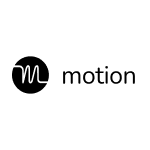
Motion basically becomes your robot assistant that rebuilds your calendar every time something changes. Boss moves the deadline up three days? Motion shuffles everything around automatically. Emergency client call? It finds time and pushes other stuff back. Pretty magical until you see the $34 monthly bill and realize it sometimes thinks updating your LinkedIn profile is more urgent than finishing the quarterly report. The AI gets confused about priorities sometimes.
Asana

Asana figured out how to stop teams from burning out by watching workloads and screaming when someone’s about to crack. Smart templates actually match your team size and project type instead of generic cookie-cutter stuff. The Goals thing shows which projects actually matter versus busy work that makes everyone feel productive but accomplishes nothing. The catch is you need to pay for the expensive plan to get the good AI stuff. Free users get basically nothing.
ClickUp

ClickUp’s AI writes your project documentation when you’re staring at a blank screen at 4pm wondering how to explain why the website redesign is three weeks behind. The Brain feature lets you ask random questions like “What’s Sarah working on?” and actually get useful answers. Automation handles boring repetitive stuff without needing a computer science degree. But holy cow the interface is overwhelming. Buttons and menus everywhere. Plus the AI sometimes suggests automation that completely destroys workflows that took months to perfect.
Trello

Trello added some AI magic called Butler that moves cards around and sets due dates based on patterns it picks up from how your team actually works. Still feels like the same simple Trello everyone loves, just a bit smarter. The AI suggestions are helpful without making your head spin. Downside is it’s pretty basic compared to the heavy-duty platforms. Great for “launch the company blog” projects, not so much for “coordinate 47 contractors across 12 time zones.”
Notion
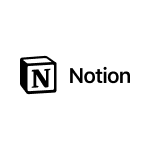
Notion’s AI saves your butt when you need to write project updates and your brain is completely empty. It’ll whip up meeting notes, project briefs, and retrospectives that don’t sound like they were written by a robot. Database features automatically sort and tag stuff so you don’t spend Friday afternoons organizing project files. Problem is if your team isn’t already using Notion, good luck getting everyone on board. The learning curve is brutal. Also works better for writing stuff down than actually managing projects.
Hive

Hive looks at your team’s skills and workloads to assign tasks to people who can actually handle them instead of whoever volunteered first in the meeting. Predicts when projects will really finish based on how fast your team actually works, not the fantasy timeline from the planning session. Shows where time really goes versus where you thought it went. Expensive though, and the design looks like something from when Facebook still required a college email address.
Zapier

Zapier connects AI features to whatever project management disaster you’re already using instead of forcing you to migrate everything. Smart triggers do stuff automatically when milestones hit or team members complete tasks. The AI builds automation workflows that would take forever to set up manually. Not actually project management software though – just makes your existing tools talk to each other. When connected apps update, complex automations sometimes explode spectacularly.
Timely
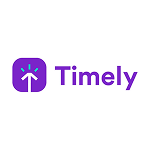
Timely automatically tracks time without you having to remember to start and stop timers like some kind of productivity robot. The AI figures out what you’re working on and categorizes everything. Shows which projects make money and which ones are just expensive time sinks dressed up as important work. Send alerts before you blow the budget. Pretty limited beyond time tracking though – you’ll need other tools for actual project management.
Monday.com

Monday.com’s colorful boards handle task dependencies while AI manages team workloads so nobody gets buried under impossible deadlines. Templates learn from how your team actually performs instead of theoretical best practices that work nowhere. Automated status updates mean fewer soul-crushing “quick sync” meetings. Gets pricey fast when you add people and AI features. Some suggestions feel generic instead of understanding your specific chaos.
Basecamp

Basecamp stays simple while adding AI that summarizes check-ins and tracks progress automatically. Filters notifications so your phone doesn’t buzz every three minutes with project updates. Chat summaries help remote teams stay connected without reading 500 Slack messages. AI features are pretty limited compared to the kitchen-sink approaches elsewhere. Works great for straightforward projects but struggles when things get complicated.
What Actually Works
Motion rocks for solo work and small teams that need smart scheduling. Asana and ClickUp pack the most AI features if you’re managing bigger teams with complicated workflows. Notion works if everyone’s already bought in. Trello handles simple stuff with basic automation that won’t confuse anyone.
Stop getting distracted by feature lists longer than your grocery receipt. Pick something that fixes your biggest headache.

The Future of AI in Project Management
Project management is about to get weird. In five years, half the stuff project managers do today will happen automatically. The other half might not need humans at all.
Everything Gets Predicted
AI will know your project is doomed before you do. Not the current version that says “budget looks tight” when you’re already 40% over. Future AI will look at your team, timeline, and requirements during planning and say “this will fail spectacularly in week seven because your database guy always underestimates migration work.” No more surprise disasters that somehow nobody saw coming.
Tasks Assign Themselves
Forget spending Monday mornings figuring out who should work on what. AI will handle all of it. Sarah finished the wireframes early? The system automatically moves her to the API documentation. Dave’s having a rough week based on his productivity patterns? He gets the easier tasks until he bounces back. Project managers will stop playing workforce Tetris and focus on actual strategy.
Just Talk to Your Computer
Status updates through dropdown menus and progress bars are going extinct. Teams will just talk to their AI assistant like it’s another team member. “The client wants the logo bigger and moved to the left” automatically updates design specs and notifies the right people. “Marketing needs this done by Thursday instead of Friday” reshuffles everyone’s schedule instantly.
Smart Resource Juggling
AI will move people and budgets around entire companies like chess pieces. Project Alpha hits a snag? The system quietly borrows two developers from Project Beta and adjusts both timelines. Portfolio management becomes automatic instead of monthly panic sessions in conference rooms.
But Here’s the Thing
This only works if companies actually do AI right instead of just buying the latest shiny tool. Most will probably mess it up. The ones that don’t will make everyone else look like they’re managing projects with stone tablets.
AI for Project Management: Frequently Asked Questions
Nope. AI handles the soul-crushing parts – updating those endless status reports, chasing people for updates, playing calendar Tetris with meetings. You still need humans for the messy stuff like telling the CEO why the budget doubled or explaining to stakeholders why their “simple” request will blow up the timeline. AI just kills the boring parts that make you question your career choices.
Way more than you think. Tools range from $10-50 per user monthly, but that’s just the start. Motion hits you for $34 monthly per person. Asana looks cheap until you realize the AI stuff costs extra. Then there’s training time, data migration headaches, and the three months where productivity tanks while everyone figures out the new system. Budget double what the sales rep quoted.
Everything. And it needs to be organized, which yours probably isn’t. Past project timelines, budget breakdowns, who actually did what, how long stuff really took. If your project history lives in random emails, Post-it notes, and that one Excel file Dave keeps on his desktop, you’re screwed. Plan on spending weeks digging through digital archaeology before AI can help.
Basic stuff works right away – automatic updates, simple task routing. The smart predictions everyone gets excited about? Three to six months minimum. AI needs to watch your team screw up a bunch of projects before it learns your patterns. Don’t expect miracles on week one when it suggests putting your best developer on data entry tasks.
Probably? Most vendors say the right things about security, but they’re storing your entire project portfolio in the cloud. One breach exposes everything – budgets, timelines, client details, team performance data. Read the fine print instead of trusting marketing promises. Some companies won’t touch cloud-based AI because of security concerns.
Maybe. Popular stuff like Slack and Google Workspace usually connect fine. That custom system IT built in 2019? Good luck. Your industry-specific tool that three people know how to use? Forget about it. Budget extra time for integration disasters and data migration nightmares that somehow always take three times longer than estimated.
It will get it wrong. A lot. Especially early on when it’s still learning about your team’s dysfunction. AI might suggest moving your only database expert to marketing tasks or scheduling the product launch during your biggest client’s busy season. Keep humans in charge of anything that could torpedo a project. Trust but verify isn’t paranoia – it’s survival.
No. Most AI features work automatically without you understanding the magic behind them. But someone on your team should figure out how to tweak the settings and interpret the reports. Otherwise you’re flying blind when the AI starts making weird suggestions.
Start with the people who love new gadgets. Let them play with pilot projects while everyone else watches skeptically. When early adopters start bragging about leaving work on time, others pay attention. Force everyone to switch at once and you’ll have a mutiny on your hands.
Conclusion
AI project management stopped being science fiction about two years ago. Now it’s just good business. Teams using it finish projects faster, blow fewer budgets, and actually leave the office on time occasionally.
But let’s be honest – getting there sucks. Data cleanup takes forever. Half your team will hate the new system initially. Integration always breaks something you didn’t expect. Most companies pick tools based on fancy demos instead of what they actually need.
The teams doing this right start small. They clean up their messy project histories first. They let AI handle the boring stuff while humans make the big calls. They don’t try to revolutionize everything overnight.
Right now, there’s a gap forming between companies embracing AI and those stuck in spreadsheet hell. That gap’s getting wider every month. The early adopters are winning more bids, delivering faster, and stealing clients from competitors still managing projects like it’s 2010.Want to figure out if AI project management makes sense for your team? We’ve helped dozens of companies navigate this transition without the usual disasters. We can help you pick the right tools, avoid the common pitfalls, and actually get your team using this stuff instead of fighting it.


